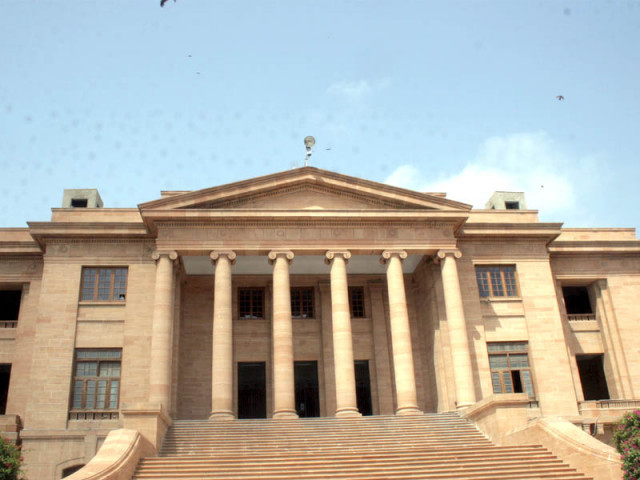Court orders: ‘Appoint VCs of universities within a month’
SHC also looks into Zakat fund utilisation for higher education

The petitioner, Sindh University's (SU) Prof Dr Imdad Ismaili, informed the court that the posts of VC and pro-VC are lying vacant in the SU. He also prayed the court to order the HEC to remove his name from the list of professors who have been blacklisted under charges of plagiarism.
Taking up his plea, SHC ordered a review of his case. Prof Ismaili and Prof Dr L Dhomeja of the SU's Institute of Information and Communication Technology, assisted Dr Azhar Ali Shah in his two 2011 research articles published in the SU's journal.
The HEC charged Dr Shah and the co-authors with self-plagiarism because they allegedly reproduced the same articles that Dr Shah had earlier published in foreign journals. However, Dr Shah, who is currently the president of Sindh University Teachers Association, claims that he was victimised because, at the time of his blacklisting, he was the central vice-president of Federation of All Pakistan Universities Academic Staff Association (Fapuasa) and he was critical of many HEC's policies.
'Utilise Zakat funds for education'
In a separate order, the SHC opened possible avenues of opportunities for students who cannot pay for their higher education. The Hyderabad Circuit Bench on Thursday heard a case pertaining to utilisation of Zakat funds for higher studies.
A sum of around Rs400 million was earmarked and over Rs230 million utilised from 2012 to 2016 for education stipends, according to the government. The bench of justices Salahuddin Panhwar and Khadim Hussain Tunio noted with surprise a lack of coordination among the Sindh Zakat and Ushr department, district zakat committees and the varsities.
"It appears that the headquarters [provincial office in Karachi] feels itself absolved by releasing amount to districts and [that the] districts stand relieved by issuing cheques to the institutions. Such practice, apparently, is neither logical nor reasonable," the court observed pointing out that prima facie, there is no mechanism of 'check and balance' and 'coordination' among the department, district Zakat committees and the institutions. The court was informed that the district Zakat authorities release funds to the educational institutions and leave it to their discretion to decide which students will benefit from the funds.
During the hearing, the court asked the additional advocate-general, Allah Bachayo Soomro, to submit details of the number of beneficiary students, criteria and universities. However, he failed to share the record.
"It is strange that Zakat is even given to [government] middle and high schools," the bench noticed as the government schools provide free education.
The court gave three months to the department to establish its website. It is stipulated to contain details of amount received under the head of Zakat from the federal government, procedure for payment of Zakat to the deserving and number of students benefiting from Zakat and Ushr programmes along with the educational institution and universities where they are enrolled. It also ordered the department to ensure that the 10% quota for free education as well as scholarship programmes should not be affected by the efficient utilisation of Zakat funds.
The universities have also been directed to constitute committees for utilisation of Zakat funds and to also provide details of available seats for free education on Zakat on their websites. They are further asked to publish an additional column in the admissions forms for students who want to apply for Zakat-funded education.
The order came in a petition filed by Ghulam Raheem. He claimed that he twice qualified the entry test for Bachelor's of Law (LLB) programme in 2013 and 2014 but was not enrolled as he could not pay the fee.
Published in The Express Tribune, December 31st, 2016.



















COMMENTS
Comments are moderated and generally will be posted if they are on-topic and not abusive.
For more information, please see our Comments FAQ